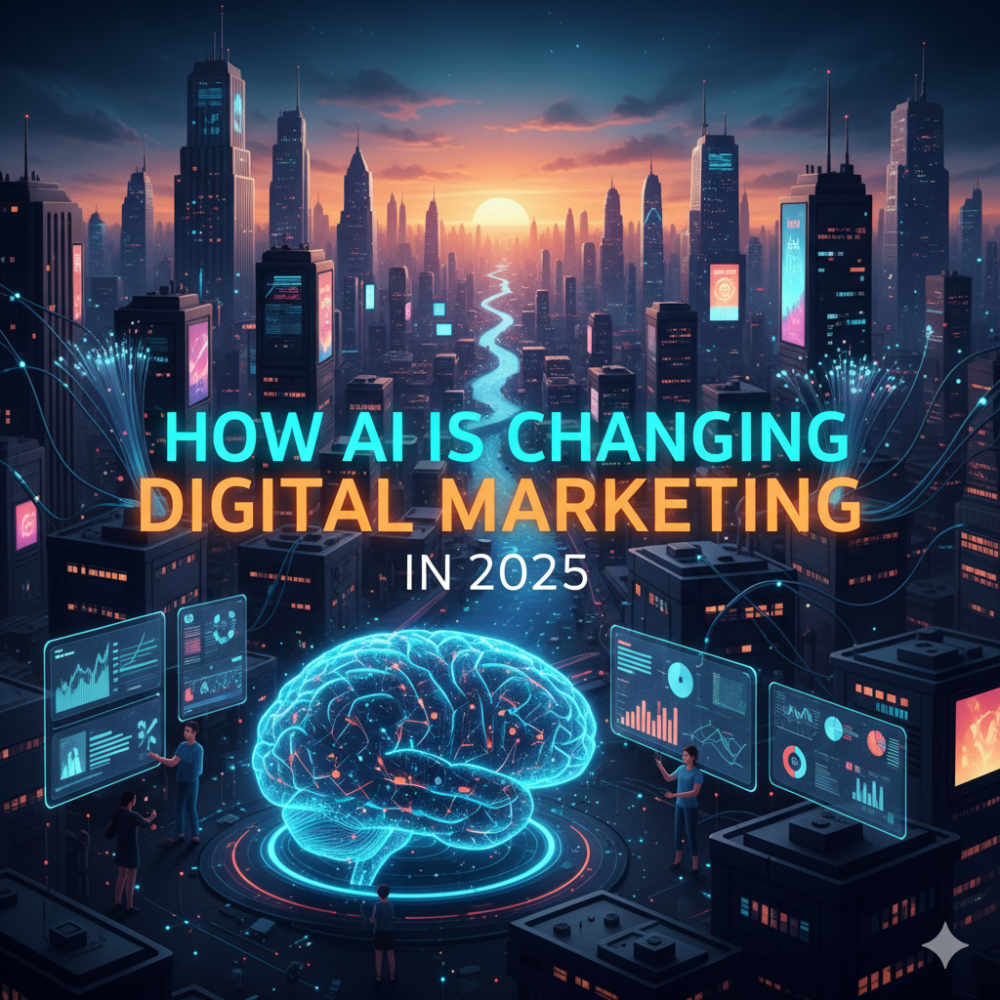AI in Digital marketing works differently today. Most campaigns now start with data, not guesses. Marketers use simple AI tools to study search trends, track clicks, and measure what actually brings results. Aim IT Solution uses AI tools to strengthen on-page SEO. This approach helps websites gain better visibility and steady organic traffic through real data insights.
This shift didn’t happen overnight. Ad platforms give better data now. Analytics tools show what works and what doesn’t. Marketing teams use these reports to plan their next step. The goal stays the same — reach the right audience and get real results. The process is now clearer and more accurate.
AI handles the repetitive parts like sorting numbers or testing ad copies. People still guide the message and strategy. The mix of both creates faster learning and clearer outcomes. Many marketers use a LinkedIn text formatter to improve their posts. It makes the text easy to read and clean to look at.
The Evolution of AI in Digital Marketing
AI entered marketing slowly. At first, it helped with small tasks like tracking website visits or showing ads to the right people. Over time, tools became smarter. They learned to read customer behavior and suggest better actions.
Earlier, marketers used guesswork and manual data sheets. Now they depend on tools that study real numbers. AI helps them see which content drives clicks, which ad performs best, and which audience responds more.
Every year, marketing platforms add more AI features. Email tools suggest the best time to send campaigns. Ad systems adjust budgets based on performance. Search tools recommend better keywords. These small steps make big changes in how teams plan and measure success.
Major Applications of AI in Digital Marketing
AI helps marketers in daily work. It studies data and shows what performs well. Marketers use these insights to plan and improve campaigns. The tools make their decisions faster and more accurate. Below are the main areas where it shows real value.
AI in Content Marketing
Marketers use AI tools to find trending topics and create outlines faster. These tools study what people search for and suggest ideas that match audience needs. Writers still shape the final message, but AI saves time on research.
AI in Advertising and Media Buying
Ad platforms now use AI to manage bids and placements. The system tracks audience response and adjusts spending to improve results. This makes ad delivery more efficient and reduces wasted budget.
AI in SEO and Analytics
SEO tools use AI to read keyword data and link patterns. They track user actions on each page. They show where visitors spend more time. This data helps marketers find strong pages and fix weak ones. Analytics platforms also show clearer insights into what converts and what doesn’t.
AI in Customer Engagement
Many brands now use chatbots to answer simple questions or collect leads. AI tools read user messages and respond with relevant answers. This improves response time and keeps customers engaged even outside business hours.
Benefits of AI in Digital Marketing
AI adds value to daily marketing work. It cuts extra time and limits mistakes. Marketers use data to plan actions based on real results, not assumptions.
Better Decisions
AI tools collect and sort data faster than manual methods. Marketers see what works and what fails in real time. This helps them make clear and confident choices.
Higher Efficiency
AI handles small, repetitive tasks like sorting leads or checking campaign reports. Teams save hours each week and can focus on planning and creative ideas.
Improved Targeting
AI reads user patterns and predicts what people might like. It helps ads reach the right audience and improves conversion rates.
Personalized Experience
AI tools suggest content based on user behavior. Visitors see offers and posts that match their interests. This builds stronger engagement and loyalty.
Cost Control
AI tracks spending and performance closely. It reduces waste by cutting weak ads and focusing budget on what brings results.
Real-World Examples of AI in Action
Many companies use AI tools to manage their daily marketing tasks. These tools read data and show clear results. They help teams test ideas and improve campaigns faster.
ChatGPT for Content Planning
Writers use ChatGPT to draft outlines and collect ideas from search trends. It gives a base for research, but people still shape the tone and message.
Google Ads Smart Bidding
Google Ads adjusts bids using live data. It studies clicks and conversions to decide where money works best. Marketers watch the numbers and step in when they see new patterns.
HubSpot for Email Marketing
HubSpot checks when people open emails and which links they click. It suggests the right time to send updates. This simple change often raises open rates and saves effort.
Meta Advantage+ Campaigns
Meta tests different ad versions at once. It finds the mix of text and images that draws the most attention. Teams then use those insights to plan the next campaign.
These examples show a clear point. AI helps with heavy data work, but people still guide the story. The best results come when both work together — data for direction, people for ideas.
Future Trends – What’s Next for AI in Digital Marketing
AI changes how marketers work. It helps teams plan better and understand what customers want.
In the future, brands will use AI to make content personal. It will show users products that match their needs and habits.
Automation will handle small tasks. It will send emails, check reports, and adjust ads faster. Marketers will get more time to plan and create ideas.
Voice and image searches will grow. People will speak or use photos to find things online. Marketers will need to update content to fit these search types.
The future of marketing will depend on how brands use data. Companies that learn early will reach more people and build stronger trust.
Conclusion
AI has become part of modern marketing. It helps teams read data and find what brings real results.
Marketers use it to plan better and target the right audience. It saves effort and keeps work more accurate.
The goal remains simple — connect with people and build trust. AI makes this process faster and more focused.
Companies that use AI wisely will see steady growth. They will make clear decisions and stay strong in a changing market.



